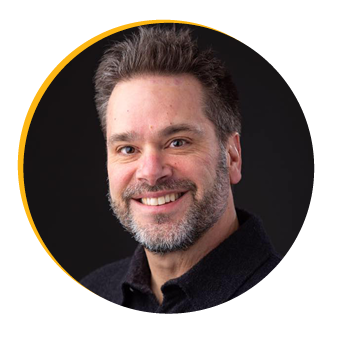Shining a Spotlight on Steve Langan

Affiliate Member Since 2019
Director, UNO Medical Humanities
Bio
What do you do at UNO?
I serve as the Director & Community Liaison for UNO Medical Humanities, which includes helping to form the Ted Kooser Center for Health Humanities, a bright spot in the future of humanities and arts programming and research, locally and nationally. There are over 75 current participating faculty members on the UNO MH team, including several UNMC affiliate members, a group that we're aiming to grow. Our team includes specialists and subject matter experts who cover all aspects and themes of the health humanities and healing arts — history of medicine, social disparities of health, mitigation of healthcare worker burnout, enhancing empathy, the list goes on. We're particularly proud of the semester-long UNO MH-led arts and humanities programming among the Physician Assistant students at the College of Allied Health, and we've been sharing our impressions at several recent conferences — and are now in the process of data collection and manuscript preparation. It's groundbreaking work!
Tell us about your educational research interests and teaching role.
I write and publish poetry, and I teach a variety of classes at UNO, including Writing about Sickness and Health, a spring course in the English Dept. for both undergraduate and graduate students. This course evolved from my experience of leading the Seven Doctors Project, a writing group that I formed at the UNMC in 2008 to try to help mid-career physicians who were willing to claim burnout and job dissatisfaction by having them practice creative writing. Community building, deep reading, guided reflection and making in a workshop setting — these are among the aims of this class, and also the reasons I keep coming back to teach (and learn to from our insightful and deeply engaged students).
What is one of your favorite/memorable teaching moments?
I developed a class last semester at the UNO HONORS Program, and I called it Creativity As Survival. I had a hunch that encouraging these students to dust off or begin some creative practice — and measure its effect on their lives and well-being — would have a positive effect during some of the darkest days of the pandemic. They took me up on the offer ... and then some. This group, dubious at first and believers and champions now, will share impressions, results, and effects of their work during a presentation later this semester.
What do you see as the biggest benefit to being a member of the IAE?
Thanks to many IAE colleagues, especially Beth Culross, a great champion for UNO's role in delivering this vital content and programming, our focus on and understanding of the health humanities and healing arts has deepened. To meet students where they are, at UNO and UNMC and all other higher education institutions, we really have to acknowledge the impact and vitality of the arts and humanities and implement this work. In general and through its health humanities sub-group, the IAE has been a wonderful proponent of this call to action and for sustainability of arts and humanities offerings at UNMC.
When you were a kid, what did you want to be when you "grew up" and why?
When I realized around age 13 that my destiny wasn't the NBA, I had thoughts of being a writer and a teacher and maybe helping to lead an organization that helps people who are in need — mission-driven work. My current role includes all of these activities and much more!
Back to Member Spotlight page